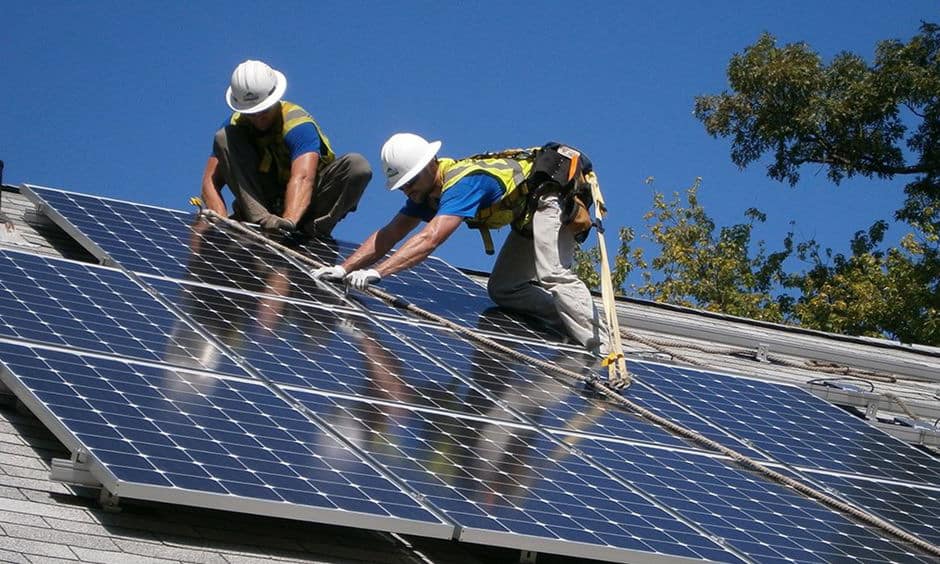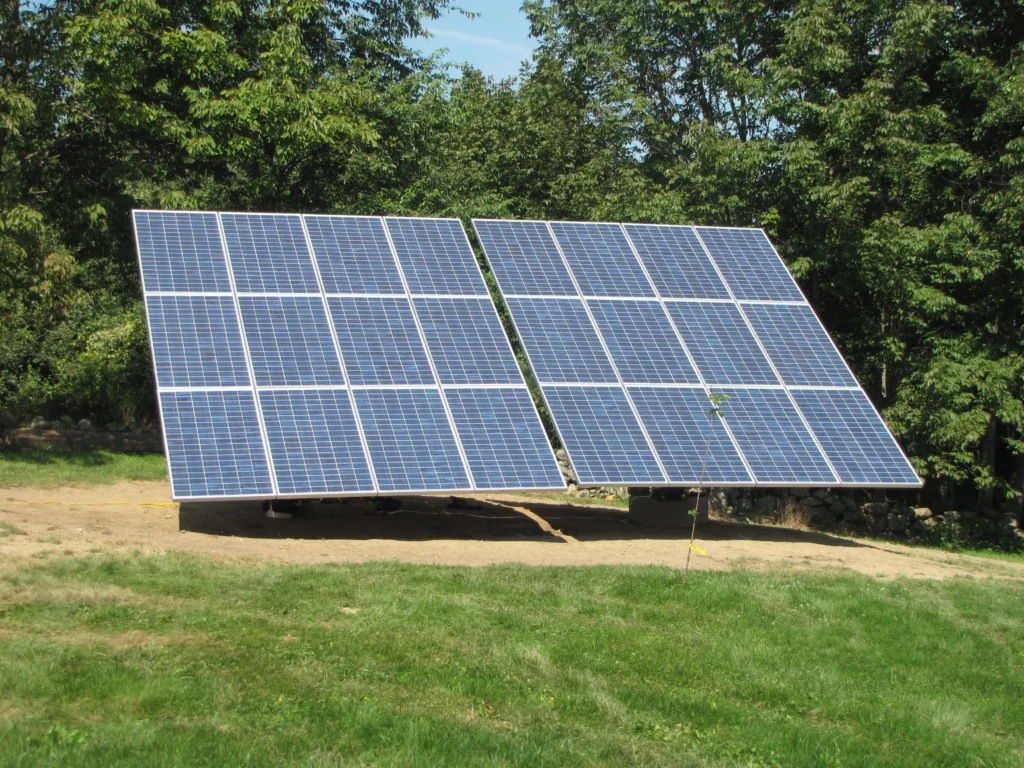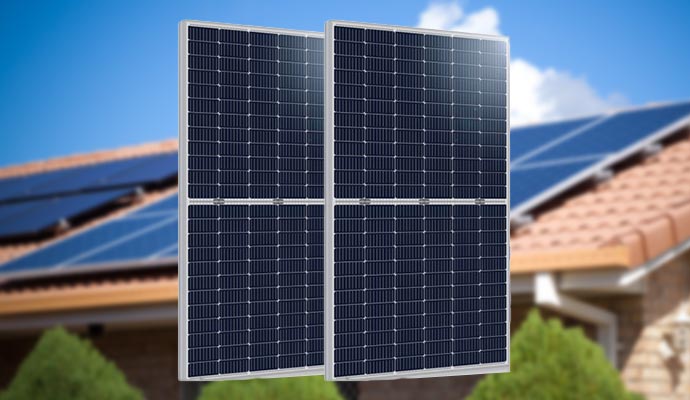So, you made the decision to embrace solar energy and signed up for a solar panel contract. You were excited about the potential benefits – reduced electricity bills, a smaller carbon footprint, and the satisfaction of contributing to a greener future. However, as time went on, you realized that the contract you entered into may not be living up to your expectations. Don’t worry, my friend, you’re not alone. In this blog post, we’ll explore how to get out of a solar panel contract and navigate the process smoothly.
Can a Solar Panel Contract Be Terminated if the Output is Not Meeting Expectations?
Yes, a solar panel contract can be terminated if the measuring solar panel output is not meeting expectations. It is important to clearly outline the performance expectations in the contract and have a process for regularly monitoring and verifying the output. If the agreed-upon levels are consistently not met, the contract can be terminated.
Understanding Solar Panel Contracts
Let’s start by understanding what a solar panel contract is all about. In simple terms, it’s a legally binding agreement between you and a solar panel company. The contract outlines the terms and conditions of your solar panel installation, including the payment structure, installation duration, performance guarantees, and warranty provisions.
Initially, signing the contract seemed like the right move. You were eager to jump on the renewable energy bandwagon and secure a greener future for yourself. However, it’s important to carefully consider the terms and conditions before signing on the dotted line.
Assessing Your Contractual Obligations
Now that you find yourself wanting to get out of your solar panel contract, it’s essential to familiarize yourself with your rights and obligations. Take the time to review your contract agreement as thoroughly as possible. Pay close attention to payment terms, utility interconnection requirements, insurance provisions, and equipment ownership.
Valid Reasons for Terminating a Solar Panel Contract
Before diving into the process of terminating a solar panel contract, make sure you have valid reasons for doing so. Here are some common scenarios that may justify ending your agreement:
Non-performance by the solar panel company:
If the solar panel company fails to meet installation or performance milestones, or if your system consistently underperforms, you might have grounds for contract termination.
Breach of contract by either party:
If either you or the solar panel company fails to fulfill the obligations outlined in the contract, it could be considered a breach of contract.
Changes in financial circumstances:
Sometimes, unexpected financial changes make it difficult for you to meet the payment requirements of the contract. It’s essential to communicate these changes to the solar panel company promptly.
Changes in personal circumstance:
Life happens. Whether it’s a relocation, home sale, or other personal circumstances that make it impractical or impossible to keep the solar panels, these changes can be valid reasons for termination.
Seeking Legal Advice
Once you’ve determined that you have valid reasons to terminate your solar panel contract, it’s wise to seek legal advice. Both an attorney well-versed in contract law and one with experience in solar panel contracts can guide you through the process and help protect your rights.
Negotiating with the Solar Panel Company
Before proceeding with any legal action, it’s generally a good idea to try negotiating with the solar panel company. Start by communicating your concerns and reasons for wanting to terminate the contract. Be honest and firm, but also open to possible alternatives or solutions. Remember, it’s in their interest to maintain a positive relationship with their customers.
Contract Amendment or Modification
If you reach an agreement with the solar panel company, it may be possible to amend or modify the contract. This can involve changing certain terms and conditions to accommodate your needs or concerns. It’s crucial to ensure that any changes made to the contract are documented properly for clarity and future reference.
Mediation or Alternative Dispute Resolution
If negotiations with the solar panel company are unsuccessful or reach an impasse, you might consider mediation as an alternative to costly and time-consuming legal action. Mediation involves engaging an impartial third-party mediator who can facilitate a discussion between both parties to find a mutually agreeable resolution.
Preparing for Legal Action
In some cases, legal action may be necessary to resolve your solar panel contract disputes. Before proceeding, gather all relevant evidence to support your case. This can include copies of the contract, correspondence with the solar panel company, and records of any non-performance or breaches of contract.
Mitigating Risks Before Signing a Contract
Of course, the best way to avoid finding yourself in a situation where you want out of a solar panel contract is to mitigate the risks before signing anything. Before committing, conduct thorough research on the solar panel company. Ask for and review references from previous customers, and seek expert advice from trusted sources in the industry to ensure you make an informed decision.
Additionally, ask the solar panel company about the financing options available. Understanding the financial responsibilities and repayment terms is crucial to avoid any surprises or potential financial strains down the line.
It’s also a good idea to inquire about the performance guarantees provided by the solar panel company. A reputable company will stand behind the quality and effectiveness of their systems, assuring you that you are making a sound investment.
Lastly, ensure you fully understand the maintenance and warranty provisions in the contract. Knowing who is responsible for upkeep and repairs, as well as the duration and coverage of the warranty, will help you plan for any potential issues that may arise.
By following the steps outlined in this blog post, you can navigate the process of getting out of a solar panel contract with confidence. Remember, termination should be a last resort, and it’s always best to try negotiating and exploring alternatives before resorting to legal action.
In the next section, we will delve deeper into the potential consequences of terminating a contract and how to mitigate them. So read on, my friend, and let’s uncover the next steps in this journey.
Potential Consequences of Terminating a Contract
When terminating a solar panel contract, it’s essential to understand and mitigate any potential consequences that may arise. Let’s take a closer look at two areas that can cause concern: financial penalties and impact on your credit score and reputation.
Financial penalties and termination fees:
When terminating a contract prematurely, you may be subject to financial penalties or termination fees outlined in the initial agreement. These fees are put in place to compensate the solar panel company for any costs incurred due to the termination. It’s crucial to carefully review the contract to understand the potential financial implications before making a decision.
Impact on your credit score and reputation:
Terminating a contract, especially if it results in a breach or default, can have an impact on your credit score and overall reputation. This can make it more challenging to secure future financing or enter into contracts with other service providers. It’s important to consider the potential long-term consequences before moving forward with termination.
Mitigating these risks is essential to protect yourself and your financial standing. This is why it’s crucial to seek legal advice and explore negotiation options with the solar panel company before making any hasty decisions.
Now that we’ve discussed the potential consequences, let’s dive into the next section, where we’ll explore mediation or alternative dispute resolution as an alternative to legal action.
Mediation or Alternative Dispute Resolution
If negotiations with the solar panel company hit a roadblock, you can consider mediation or alternative dispute resolution as an alternative to going to court. These methods aim to facilitate communication between both parties with the help of a neutral third-party mediator. The mediator’s role is to guide the discussion and facilitate a mutually acceptable agreement.
The benefits of choosing mediation include the potential for a quicker resolution, reduced costs compared to a full-blown legal battle, and the opportunity to maintain a more amicable relationship with the solar panel company.
While mediation is not always successful, it is worth exploring before opting for legal action. It provides an opportunity for both parties to voice their concerns and work towards a compromise that meets the needs and interests of all involved.
In the next section, we’ll discuss how to prepare for legal action should mediation fail or not be a suitable option for your situation. So, buckle up, my friend, and let’s delve into the world of legal procedures.
Preparing for Legal Action
If negotiations and mediation efforts fail or aren’t viable options, you may need to consider pursuing legal action. Before taking this step, it’s crucial to be fully prepared to strengthen your case. Here are some key steps to follow:
Gather evidence:
Compile all relevant documentation that supports your position, including copies of the contract, any communications with the solar panel company, and records of any non-performance, breaches, or damages suffered as a result of their actions or inactions.
Understand the statute of limitations:
Each jurisdiction has specific time limits within which you can file legal action. It’s important to be aware of these limitations to ensure your case is not dismissed due to untimely filing.
Select the appropriate venue:
Determining the right jurisdiction and venue to file your case is essential. Consult with your attorney to determine which court has jurisdiction over your dispute and which venue is most convenient for all parties involved.
Filing a lawsuit:
This step involves preparing the necessary legal documents, presenting your complaint, and officially initiating the legal process. Your attorney will guide you through this process, ensuring that all required forms and documentation are submitted accurately and on time.
Now that we’ve discussed the process of filing a lawsuit, let’s delve into the potential consequences of terminating a solar panel contract. These may include financial penalties and impacts on your credit score and reputation.
Financial penalties and termination fees:
Terminating a contract prematurely often comes with specific financial penalties as specified in the contract. These penalties are designed to compensate the solar panel company for any costs incurred due to the termination. It’s crucial to carefully review the contract to understand the potential financial implications before making a decision.
Impact on your credit score and reputation:
Terminating a contract, especially if it results in a breach or default, can have an impact on your credit score and overall reputation. This can make it more challenging to secure future financing or enter into contracts with other service providers. It’s important to consider the potential long-term consequences before moving forward with termination.
Mitigating these risks is essential to protect yourself and your financial standing. This is why it’s crucial to seek legal advice and explore negotiation options with the solar panel company before making any hasty decisions.
Now let’s move on to discussing the importance of mitigating risks before signing a solar panel contract.
Mitigating Risks Before Signing a Contract
Knowing what you’re getting into before signing a contract is key to avoiding potential issues down the line. Here are a few steps you can take to mitigate risks:
Conduct thorough research on the solar panel company:
Before committing to a contract, do your due diligence. Research the company’s background, reputation, and customer reviews. Look for any red flags or negative feedback from previous customers. This information can help you make an informed decision.
Request and review references from previous customers:
Reach out to the solar panel company and ask for references from previous customers. Contact these references to get a firsthand account of their experience with the company’s installation, performance, and customer service. Their insights can provide valuable information to help inform your decision.
Seek advice from a third-party expert:
Consider consulting an independent solar energy expert or consultant who can assess the contract and provide guidance based on their industry knowledge. They can help you understand the terms and conditions and provide insights into common pitfalls to watch out for.
By taking these precautions, you can mitigate some of the risks associated with entering into a solar panel contract and make a more informed decision.
As we near the end of this blog post, let’s briefly recap the key points we’ve covered so far.
In this blog post, we explored how to get out of a solar panel contract. We began by understanding the purpose of solar panel contracts and the parties involved. We then delved into assessing your contractual obligations and identifying valid reasons for termination.
We discussed seeking legal advice, negotiating with the solar panel company, and potentially amending or modifying the contract. We also explored mediation and alternative dispute resolution as alternatives to legal action.
We touched on the preparation required for legal action, the potential consequences of terminating a contract, and the importance of mitigating risks before signing a contract. Overall, the main objective is to navigate the process smoothly and protect your rights and financial interests.
While termination should be a last resort, it’s crucial to recognize when a contract is not meeting your expectations and take appropriate action to rectify the situation.


